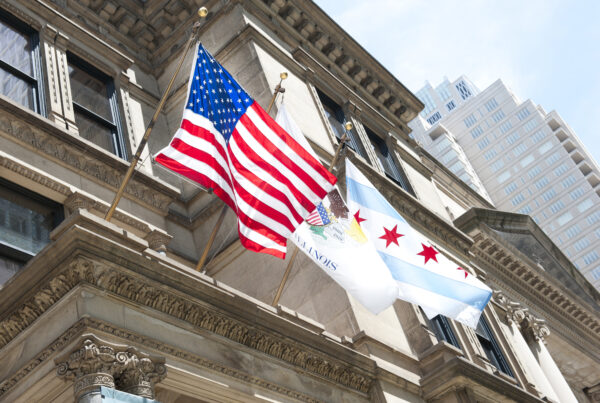33 Democrats call on Mayor Lightfoot to work with advocates on compromise bill
SPRINGFIELD — Representing a significant voting bloc, 33 Democratic state lawmakers – 20 in the Illinois House of Representatives and 13 in the State Senate – introduced a bill today in a renewed effort to strike a compromise with Chicago Mayor Lori Lightfoot and advocates working to address the budget deficit while also creating major dedicated funding to address homelessness in Chicago.
The legislation (Senate Bill 3243 and House Bill 4826) preserves all of the money that Lightfoot is seeking to trim the city’s budget deficit while generating a projected $79 million to curb homelessness, which now afflicts more than 86,000 Chicagoans. The legislation would modify Lightfoot’s quest to increase the Chicago’s Real Estate Transfer Tax (RETT), adjusting proposed rates assessed on the properties sold for more than $3 million, while extending a tax cut to 96% of average annual property sales in the city.
The bill largely parallels a concept championed by a group of Illinois senators during last fall’s veto session, when Lightfoot’s bid for General Assembly approval of the tax increase faltered due, in part, to the qualms of legislators who want the measure to fund affordable and supportive housing for people experiencing homelessness in concert with reducing the budget gap.
Lightfoot, herself, embraced a proposed RETT increase to unleash new funding to combat homelessness while campaigning for mayor. This is one reason state legislators believe a compromise could be possible with her administration.
“We can’t emphasize enough that this legislation will produce a win-win outcome that would significantly reduce homelessness in our city and help address the city’s budget deficit,” said State Senator Ram Villivalam (D-8th). “Along with several of my colleagues and the Bring Chicago Home coalition, I look forward to collaborating with both the mayor and the governor to get this done.”
The legislation is estimated to yield $88 million that would be pledged to deficit reduction and $79 million dedicated to shrinking homelessness. To amass those revenues, the bill would honor the core integrity of Lightfoot’s proposal to charge a transfer tax on a graduated scale, adjusting the rates applying to only two tiers of high-end property sales.
For sales over $3 million, the bill would increase the rate from 2% to 2.8%, applying only to the portion of the transaction between $3 million and $10 million. For sales over $10 million, it would increase the rate from 2.55% to 4%, applying only to the portion of the transaction exceeding $10 million.
For all other sales tiers, the rates would remain identical to Lightfoot’s proposal, ensuring a tax cut for properties purchased for less than $1 million – equivalent to 96% of the city’s average annual real estate transactions.
Conversations between legislators, advocates, and the mayor’s office are ongoing, but no agreement has been reached. State legislators hope the introduction of the bill will be an impetus to bring the two sides closer together.
“If passed, this bill will create resources for affordable housing that will help shrink the shortage of 120,000 affordable units in the city of Chicago and have a significant impact on reducing homelessness,” said State Rep. Delia Ramirez (D-4th), the lead sponsor of the bill in the House. “At the same time it will give a tax cut to 96% of property transactions in the city and preserve the mayor’s progressive tax structure. Now is the time to come together to get this done.”
While aid to the homeless has increased marginally during the Lightfoot administration, it still ranks near the bottom among the 10 U.S. cities with the largest homeless populations, accounting for only .08% percent of what New York City allocates to the problem and 6% percent of what Los Angeles spends.
Meanwhile, homelessness in Chicago continues unchecked, affecting nearly 14,000 people who are currently working, more than 18,000 who have some college education, and more than 20,000 children, many of them struggling to stay in school, according to a 2019 analysis compiled by the Chicago Coalition for the Homeless.
FOR A COMPLETE LIST OF ALL 33 LAWMAKERS SPONSORING THE LEGISLATION, CLICK HERE






 Chicago Coalition for the Homeless is now Chicago Coalition to end Homelessness (CCH).
Chicago Coalition for the Homeless is now Chicago Coalition to end Homelessness (CCH).